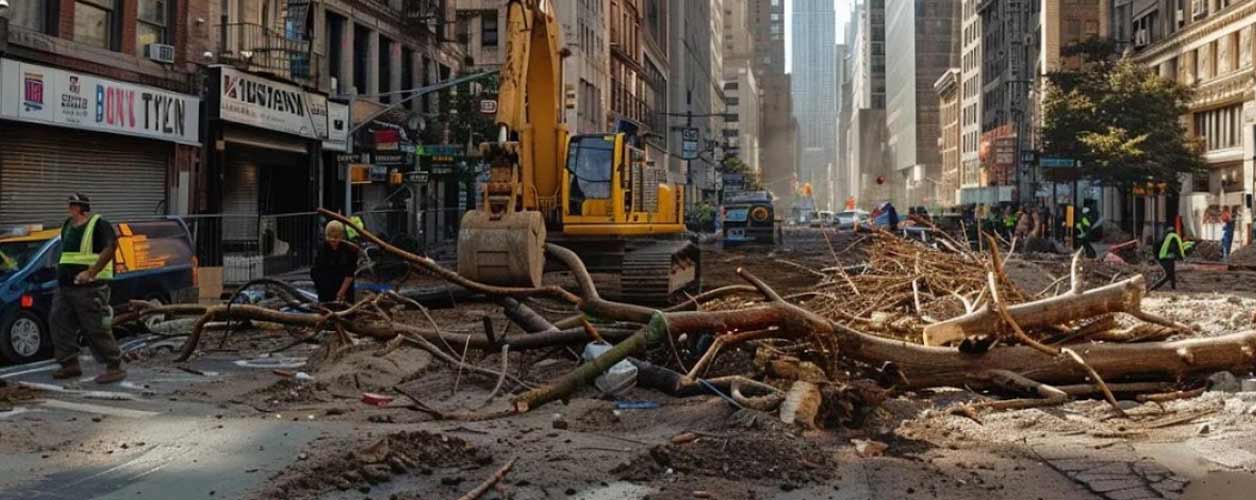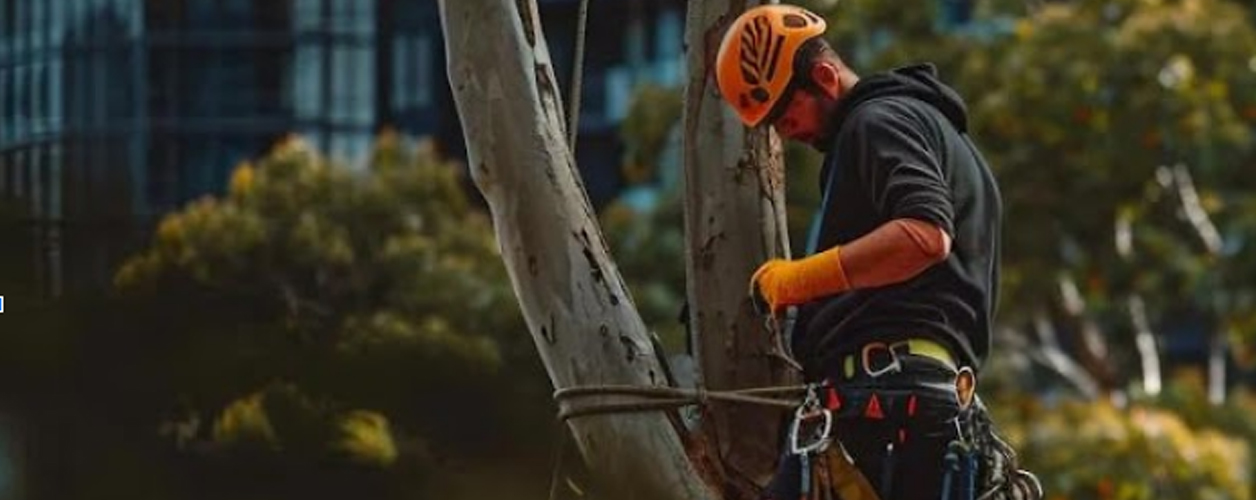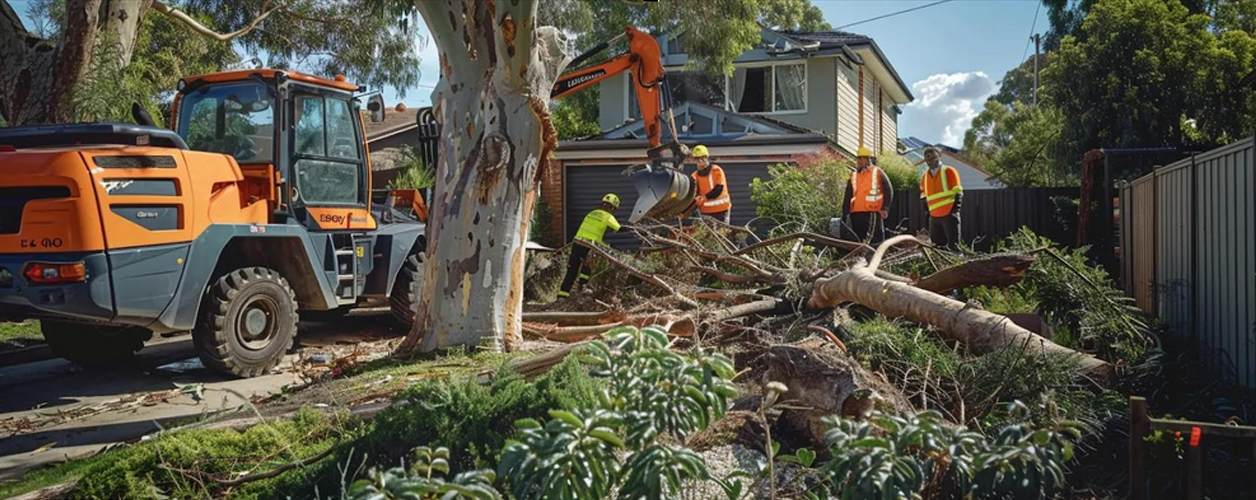Get free quotes within minutes
Emergency Tree Removal Melbourne: Fast, Safe, and Professional Services for Urgent Tree Hazards

Table Of Contents
- Introduction
- Which Emergency Tree Removal Services Are Available in Melbourne?
- How Quickly Can Emergency Tree Removal Services Respond in Melbourne?
- What Are the Safety Measures and Regulations for Emergency Tree Removal in Melbourne?
- How Can Melbourne Residents Identify Hazardous Trees Before Emergencies Occur?
- Which Melbourne Suburbs Are Covered by Emergency Tree Removal Services?
- Final Thoughts
Immediate action is vital because delays can magnify hazards. When a tree is about to fall, every minute counts in preventing injuries, property damage, and further risk to surrounding structures. Fast intervention reduces the debris field, making cleanup easier for local councils, and can cut overall recovery time by up to 50%. Many insurance policies require prompt action, and a quick, well-documented response improves claim outcomes while reducing liability. In dense urban areas like Melbourne, rapid removal also minimises disruptions to traffic and business operations, maintaining both public safety and community resilience.
Which Emergency Tree Removal Services Are Available in Melbourne?
Melbourne offers a variety of emergency tree removal services to handle different hazardous scenarios. Common services include:
- Fallen Tree Removal: Professional crews use cranes, chainsaws, and ropes to safely dismantle and remove trees that have already fallen.
- Storm Damage Tree Removal: Specialised teams assess and remove trees compromised by high winds or heavy rainfall, extracting hazardous branches before they cause further damage.
- Stump Grinding and Site Cleanup: After removal, specialised machinery grinds the stump into mulch, and debris is cleared to restore the site.
- Tree Risk Assessments: Arborists inspect trees to forecast potential hazards and recommend preventive maintenance.
For example, one service provider successfully removed over 50 hazardous trees within 48 hours after a major storm. These round-the-clock services often include fast-tracked permits and assistance with insurance processes, ensuring property owners receive a free and transparent quote quickly.
How Is Fallen Tree Removal Handled Safely and Efficiently?
When a tree falls, crews must quickly secure the area with barriers and warning signs. They assess the risks, considering nearby structures and power lines, and use heavy machinery to cut the tree into manageable sections. This controlled segmentation prevents uncontrolled falling pieces and minimises further damage. Strict safety protocols and regular audits ensure that the process is both efficient and secure.
What Does Storm Damage Tree Removal Involve?
Storm damage removal begins with an assessment to determine which parts of a tree are unstable. Hazardous branches are removed using elevated platforms and ropes, and mobile cranes may be used to extract large sections safely. The operation is coordinated with local emergency services to secure the area before full cleanup, including stump grinding and debris removal, is conducted. This comprehensive approach minimises secondary hazards and streamlines site restoration.
How Are Hazardous Trees Identified and Removed?
Arborists identify hazardous trees through visual inspections and diagnostic tools like sonic tomography and resistograph drilling. Signs include leaning trunks, cracks, dead branches, and fungal growth. Once identified, removal techniques are tailored to the tree’s condition and location. The tree is often dismantled in sections to maintain safety, ensuring that the removal process does not endanger nearby structures or people.
What Is Included in Stump Grinding and Site Cleanup Services?
After the tree is removed, stump grinding pulverises the remaining stump into wood chips, eliminating tripping hazards. Site cleanup then involves clearing all debris, branches, and residual woodchips to restore the landscape. This process often complies with green waste disposal regulations, and the wood chips may be repurposed as mulch to improve soil health and support new plantings.
How Quickly Can Emergency Tree Removal Services Respond in Melbourne?
Speed is essential in emergency tree removal. Most services in Melbourne guarantee responses within one to two hours of a call. Certified arborists are on standby around the clock, and advanced scheduling systems help dispatch teams quickly. In many cases, crews have achieved response times of under 90 minutes during severe weather events. Quick action not only protects life and property but also aids in insurance documentation and prevents further damage.
What Is the Typical Response Time for Emergency Tree Removal?
Typically, emergency teams aim to arrive within one to two hours of the initial call. Strategic deployment of crews and mobile communication systems ensures that hazardous areas are secured promptly, minimising the window during which risks can worsen.
How Does 24/7 Availability Benefit Melbourne Residents?
The 24/7 availability of emergency tree removal services offers peace of mind to residents. With hazardous trees potentially developing at any hour, having certified arborists on call ensures that emergencies are addressed immediately, reducing property damage and liability. Continuous service availability also minimises secondary injuries and maintains smooth traffic and business operations.
Who Are the Certified Arborists Providing Emergency Tree Removal?
Certified arborists in Melbourne are trained to high standards, often holding credentials from the International Society of Arboriculture (ISA). Their expertise spans risk assessment, hazard mitigation, and safe removal practices. Well-versed in local regulations and environmental principles, these experts not only remove hazards but also advise property owners on preventive care, ensuring long-term safety and arboricultural health.
What Factors Influence Emergency Tree Removal Pricing?
Key influences on pricing include the tree’s size and species, its location relative to structures, environmental conditions, additional hazards (such as power lines), and local council permit requirements. An urgency fee is often added for after-hours calls, reflecting the higher cost of rapid response.
Are There Additional Costs for Storm Damage or Hazardous Tree Removal?
Yes, extra fees may apply when dealing with storm-damaged or hazardous trees due to the increased risk and safety measures required. Twisted or broken branches and complicated removal conditions can necessitate additional labour and specialised equipment. Homeowners should expect a detailed, itemised quote that clarifies any extra costs involved.
How Can Customers Get a Free Quote for Emergency Tree Removal?
Residents can obtain a free quote by contacting certified local service providers via dedicated helplines or online request forms. These consultations involve a quick assessment of the hazard, followed by a transparent cost estimate. Many companies also offer on-site evaluations to ensure the quote accurately reflects the specific conditions of the property.
What Are the Safety Measures and Regulations for Emergency Tree Removal in Melbourne?
Safety is a top priority in emergency tree removal. Local councils enforce strict guidelines to protect the public, and certified arborists adhere to Occupational Health and Safety (OHS) protocols. This includes using protective gear, secure work platforms, and establishing barricades. All activities comply with environmental regulations regarding debris disposal and site cleanup. Detailed documentation of the process further ensures compliance and reduces liability.
What Local Melbourne Tree Regulations Affect Emergency Removal?
Regulations in Melbourne cover zoning, council permits, and environmental guidelines. Certain mature or native species may have removal restrictions unless an immediate hazard exists. Providers must secure appropriate permits and often include post-removal cleanup or replanting plans to maintain ecological balance.
How Do Arborists Ensure Safety During Emergency Tree Removal?
Arborists follow a rigorous process: they assess the tree for stability and hazards, secure the area with barriers, and use specialised equipment to safely dismantle the tree. Continuous communication and strict adherence to safety guidelines from organisations like the ISA ensure that every step minimises risk and protects both people and property.
What Should Homeowners Do While Waiting for Emergency Tree Removal?
While waiting, homeowners should evacuate the immediate area if the tree poses a threat. They should shut off nearby power sources, clear loose objects, and refrain from attempting to remove the tree themselves. Documenting any damage with photos can also help with insurance claims.
How Can Melbourne Residents Identify Hazardous Trees Before Emergencies Occur?
Regular monitoring and professional assessments are key. Homeowners should look for visible signs such as cracks in the trunk, leaning, dead or decaying branches, and unusual fungal growth. Changes in canopy density or water stress can also be early warning signals. Annual inspections by certified arborists and periodic tree risk assessments can detect potential issues before they escalate.
What Are the Signs of a Hazardous or Unstable Tree?
Warning signs include excessive leaning, visible cracks or splits in the trunk, and extensive dead branches. Additional indicators are cavities or wounds in the trunk and abnormal fungal growth. If these signs appear, it is crucial to immediately contact a professional tree removal company in Melbourne.
When Should You Contact an Arborist for Tree Assessment?
Contact an arborist if you notice any structural changes in your trees, especially after severe weather events or if decay symptoms appear. Regular annual inspections are recommended, and any concerns about trees near high-traffic areas should prompt immediate expert evaluation.
How Does Regular Tree Maintenance Reduce Emergency Risks?
Routine maintenance, such as proper pruning, soil aeration, and disease management, strengthens a tree’s structure and minimises failure risks. Regular care can extend a tree’s life, prevent deterioration, and reduce the need for emergency interventions.
Which Melbourne Suburbs Are Covered by Emergency Tree Removal Services?
Emergency tree removal services in Melbourne cover both inner-city and suburban areas. Major service regions include Richmond, Fitzroy, Brunswick, Prahran, as well as outer suburbs like Dandenong and Frankston. Mobile units are strategically positioned to provide rapid responses tailored to local environmental conditions and tree species.
What Emergency Tree Removal Services Are Offered in Richmond?
In Richmond, services include fallen tree removals, storm damage assessments, hazardous branch trimming, and complete extractions. Professionals in this suburb are experienced in handling mature, heritage trees while preserving surrounding structures. Additional services, such as stump grinding and debris cleanup, ensure that the site is fully restored.
How Do Local Tree Types and Weather Affect Emergency Removal in Melbourne Suburbs?
The type of tree and local weather conditions greatly influence removal methods. Species such as native eucalyptus or ornamental maples have distinct needs and responses to storm damage. In narrow or heritage areas, extra precautions are taken to avoid collateral damage. Arborists use localised weather data and species-specific guidelines to ensure safe removals.
How to Contact Emergency Tree Removal Experts in Your Melbourne Suburb?
Contacting experts is easy through dedicated helplines, online forms, or mobile apps. Homeowners should keep this contact information handy, either on their phone or as part of an emergency kit. Many providers offer round-the-clock support and quick online quote systems to facilitate prompt and efficient service.
Final Thoughts
Emergency tree removal in Melbourne is vital for protecting lives and property during unforeseen hazards. With rapid responses, strict safety protocols, and comprehensive services including site cleanup and stump grinding, professional arborists help mitigate risks effectively.
Answers to Your Common Questions
YOU MIGHT ALSO BE INTERESTED IN

Arborist Services Sydney: Expert Tree Care, Removal, and Maintenance Solutions

Emergency Tree Removal Melbourne: Fast, Safe, and Professional Services for Urgent Tree Hazards











